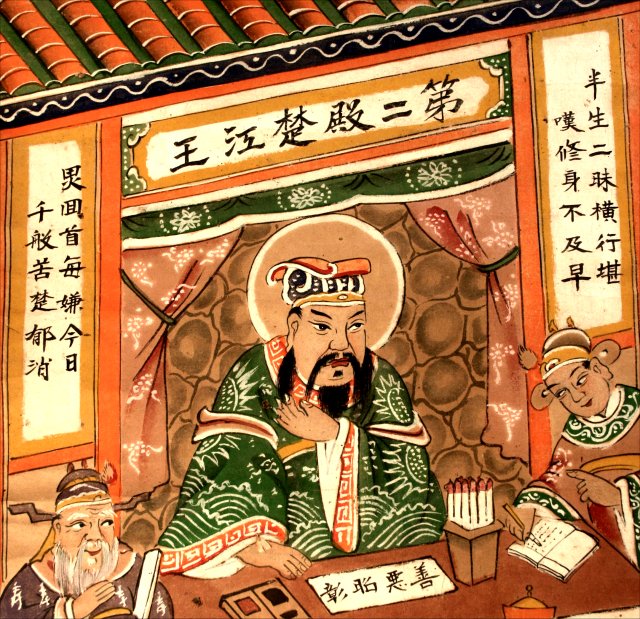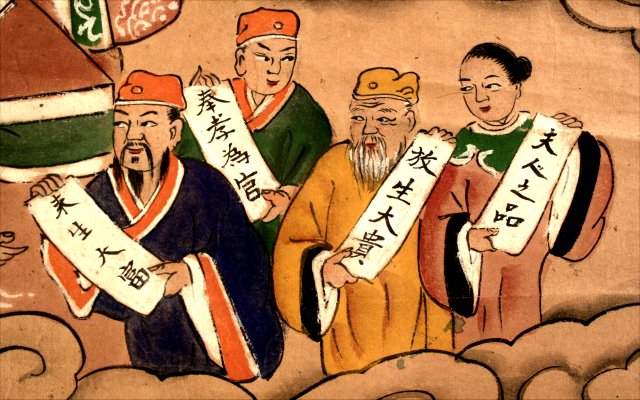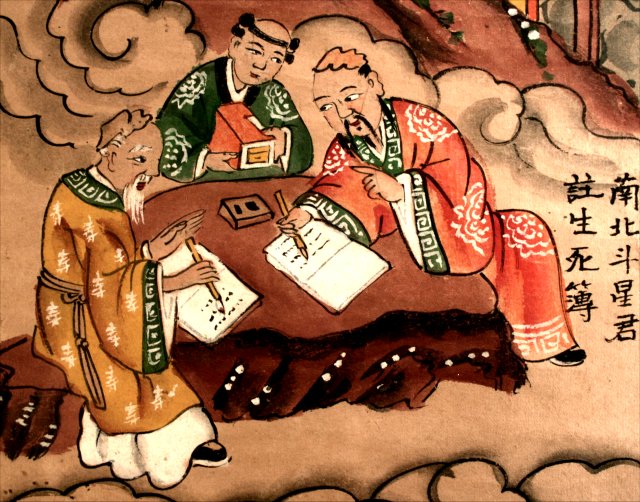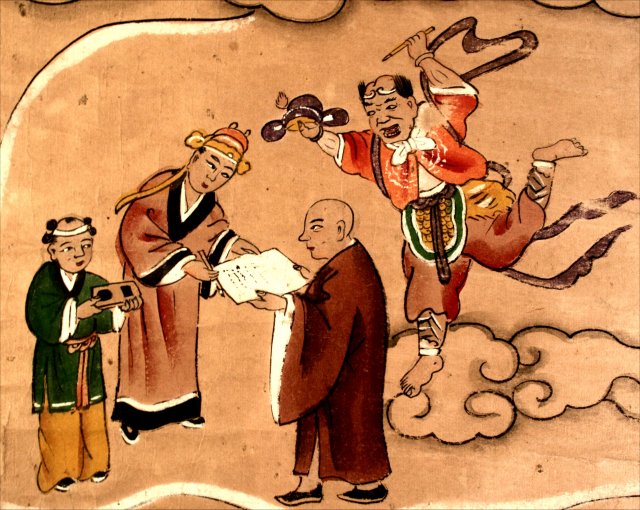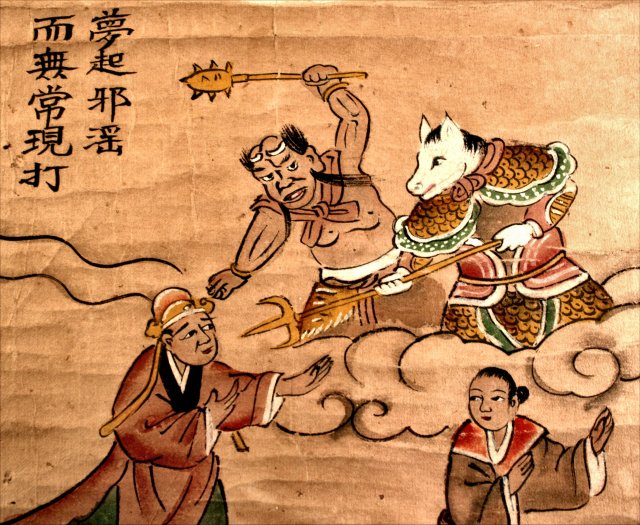|
Second court - King Chu Jiang |
| Large image |
| Previous court |
| Next court |
| Main Gates |
| Comments |
| First court |
| Second court |
| Third court |
| Fourth court |
| Fifth court |
| Sixth court |
| Seventh court |
| Eighth court |
| Ninth court |
| Tenth court |
The magistrates of hell punish the living
In the upper right of this image, the lords of the Southern and Northern Dippers are filling out the records of life and death. As one narrative excavated from Dunhuang in northwestern China describes them, here translated by Arthur Waley:
The man sitting to the north was the spirit of the northern Pole-star, the man sitting to the south was the spirit of the southern Pole-star. All men born from the womb pass through the hands of the southern star and he is overjoyed each time a man is born. But the northern star has charge of death. Every time a man dies, he is delighted.
These deeds are not limited to what one does but extend to what one says and thinks, and the living always stand between the potential for doing good and the potential for doing evil even within the realm of one's own thoughts.
The lower image is rare among hell scrolls, but the presence of Kuixing, the god who brokers the results of the civil service examination (which was a process that seemed to be based on much luck and fortune), suggests an explanation. Examinees had a reputation for being potentially licentious such as making and breaking promises to young women (who then committed suicide) or living in disreputable accommodations in the capital during their studies. Often initiated by the hell magistrates, divine retribution might take place in the examination hall itself as the ghost of his jilted lover drove the candidate to distraction, or it might come when the examiners had to make subjective judgments about the quality of the results and the hell magistrates intervened in their dreams. (See the various anecdotes appended to the Jade registers, a contemporanous genre that surveys the ten underworld courts and is a kind of textual counterpart to the hell scrolls; see also Miyazaki's China's examination hell: The civil service examinations of imperial China for other cases of examination intervention by hell magistrates.)
If the above applies here, the lower register is dominated by an examinee poised between doing good and evil. As to the former, he appears to be receiving his rewards of success as the deity Kuixing (bringing him his official's hat) is about to mark the examination as successful with his brush. As to the latter, he is dreaming of chasing a woman, but instead of Kuixing coming to reward him, the Wuchang ghost is coming to attack him. ("Wuchang" is a Buddhist term that literally means "Impermanence," that nothing remains in a constant state, but it also came to be the name of a punishing ghost that likewise appears in other hell scrolls.)
Hence the Dipper gods of fate and the magistrates of hell punish not just the dead but also the living. (For a further example, the magiestrates of hell punish the living by ending their lives early, issuing the fateful summons to "arrest them while they're still alive" 話提 and bring them before the bench.) Perhaps this set of hell scrolls begins the punishment scrolls (i.e. scrolls two through nine) with this acknowledgement that hell's jurisdiction starts during one's lifetime and not just after its termination, but this is only a speculation.
| ||||||||||
| ||||||||||
